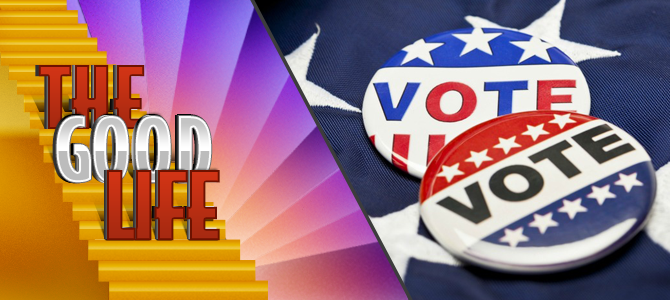The opening of my latest column at EveryJoe:
“Another election looms, and the question on everyone’s mind is: Will the big donors get their money’s worth?
“Cynicism about money in politics is a healthy response to our long history of cronyism. When $700 billion in bailout funds were distributed during the 2008 crisis, politically-connected financial institutions such as Goldman Sachs received the lion’s share. In the 1990s, the now-notorious Enron corporation strategically donated to both Democrats and Republicans to ensure that no matter who was elected it would have a seat at the table. Outside the for-profit sector, unions are also huge donors, as are rich environmental activists and well-funded groups, along with any number of other special interests. He who pays the piper — as the old saying goes — wants to call the tune, choose the instruments, and direct the players.
“After indulging some cynicism, however, what should our next steps be? …” [Read more here.]
Last week’s column: “Campus Sex and the Anti-Sexiness of the New Authoritarians”.

An excellent column as always. However, there is one sub-issue that I would like to highlight. You write:
“If we are to be advocates of democracy in a free society, then we have to think of democracy as an evolving experiment in policy and in voter education. ”
While I realize that this is not the centerpiece of the article, I am compelled to point out that it might be appropriate to advocate democracy in a free society if we are clear that a “free society” is one where individual rights are well understood, respected and actively protected. However, when this is no longer true, then democracy is transformed into either unrestricted mob rule or a sham front for a totalitarian command and control oligarchy. Today, America is adopting a hybrid of both, making democracy something that should no longer be the focus of our alegience. Instead, we must choose our words carefully and be sure that we clearly communicate that our support is for the restoration of the full meaning of individual rights and a form of government with powers strictly constrained by an ironclad document that is not open to arbitrary interpretation. I suggest that it is not democracy, but the restoration of a Constitutional Republic that must be the locus of our efforts.
Hi Jeffery:
I agree. My way of finessing that point in the article is the “democracy in a free society” phrase, which nests the democratic elements within a broader free society, leaving implicit what the proper conditions for a free society are.
Best thing I’ve read on this subject. “The whole aim of practical politics,” observed H. L. Mencken, “is to keep the populace alarmed (and hence clamorous to be led to safety) by menacing it with an endless series of hobgoblins…” Voters and consumers are not as dumb as a lot of statists say they are (excepting themselves of course).
Good point Jeffery. The founding fathers were quite cool to the idea of democracy, understanding that it was far from a synonym for liberty as too many Americans today think.
Liberty, rights and justice are not a numbers game. That twenty white men outvote one black man does not a moral case for a lynching make. Jefferson, Madison and other American founding fathers well understood that democracy unchecked by principle and law was simply another form of tyranny, what Jefferson called “a multiplication of despots.” Madison specifically referenced the turbulent Athenian experience as a caution. Their view of democracy was of a secular republic responsive to the will of the people but delimited by strong charters and institutions, an independent judiciary, separation of powers and an elaborate system of checks and balances designed to to protect the few from the many and the many from the few i.e. to safeguard minority and individual rights from destructive public passions and the people from autocratic individuals and privileged elites i.e. democracy subject to a robust rule of law – which is what separates it from mere mob rule. And even their efforts were not always sufficient to prevent American society from devolving to the latter.